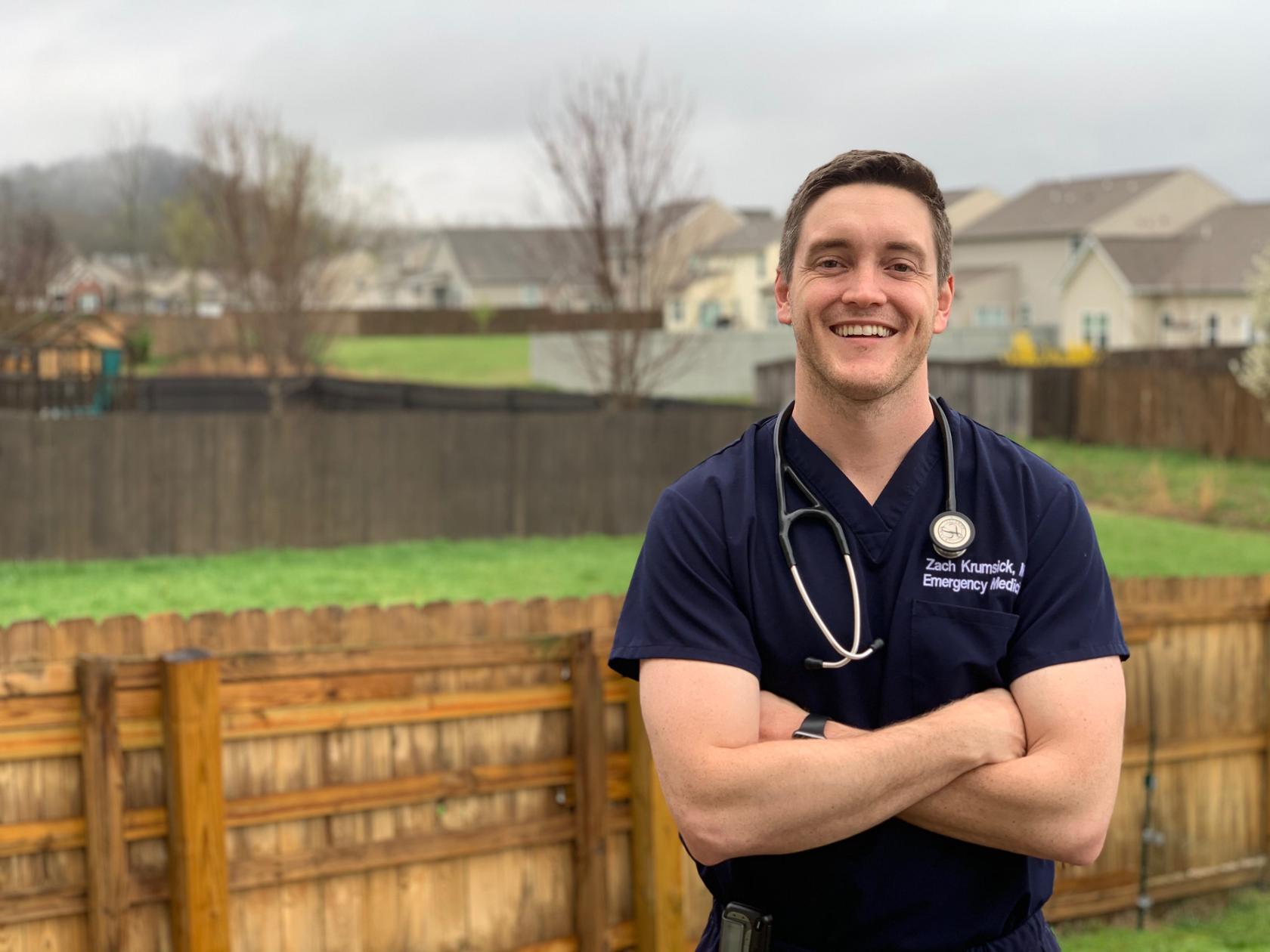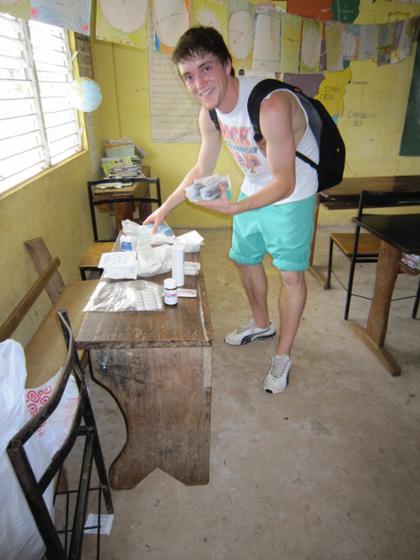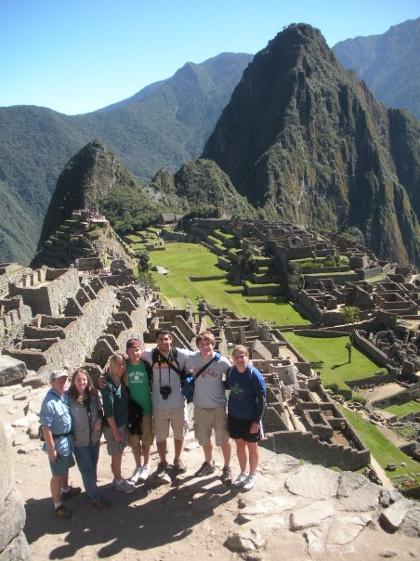Pitt State grad: from clinics abroad to pandemic at home
Tuesday, March 24, 2020 6:00 PM
News, Alumni, People and Society, Science and Technology
Pittsburg, KS

Dr. Zach Krumsick, M.D., first got a taste of serving others in challenging environments as a student majoring in biology at Pittsburg State, when the Frontenac, Kansas, native journeyed with faculty and classmates to Peru, Belize, and Juarez, Mexico, to set up medical clinics in underserved areas.
And, that experience continued in 2012, when after graduation he spent a year in the poverty-stricken area of Nairobi, Kenya, doing humanitarian work in public health and education before beginning medical school at the University of Kansas.
It came to a head this month when he found himself as a third-year resident on the front lines of tending to patients during a pandemic that followed on the heels of a deadly tornado outbreak; one hit the Nashville area, home to Vanderbilt University Medical Center where he works in the Emergency Department.
The tornadoes killed 26 people, injured 300, left more than 70,000 — including several of his fellow residents — without power and water, and hit the hospital warehouse that housed the majority of supplies they use to restock.
Days later, Krumsick and his colleagues turned their attention to preparing for COVID-19; a photo of a parking garage converted into an extension of the ED, with rows of beds and temporary walls, has gone viral.
“When I talk to my colleagues, it's very surreal,” he said. “None of us could ever have imagined this, but I feel like we’re doing really well, considering. It’s required innovation. We’re hoping for the best but preparing for the worst.”


Setting up a clinic in Belize; on a medical mission in Peru
Krumsick recalls innovation also being important on his medical missions as a student; he and his classmates served patients from other cultures in small villages miles from even the most primitive of hospitals or clinics.
“It was those experiences, on those trips, my first patient encounters — that laid a foundation for me to use today; I only had a few minutes to gain their trust and develop a relationship, to work with them and treat them, and I likely would never see them again,” he said. “That’s very much what life is like now in the emergency department.”
He and his colleagues have changed their patient triage process to mitigate the risk of those with COVID-19 infecting others, they’re protecting vulnerable populations, and they’re taking extra precautions themselves — including being vigilant about the proper use and disposal of masks, gowns, and gloves.
“It’s always at the back of my mind that I could get this, and I think about my family, bringing it home to my baby or my wife,” he said. “I think about my friends and family back in Southeast Kansas and their possible exposure. I’m hyper aware. We all are.”
Life for he and his cohorts of 39 residents is focused completely on COVID-19 now, he said.
“There is technically no day off; we’re all on call and can get a call at any moment,” he said. “We stay until the job is done. But I’ve wanted to do this since elementary school, and certainly that was reinforced in college in those clinics we set up abroad. It spoke to my heart, down there in Peru, in Belize, in Mexico, that this is really what I wanted to do. What would future Zach say to past Zach? I would 100 percent go for it — I would take the exact same path.”